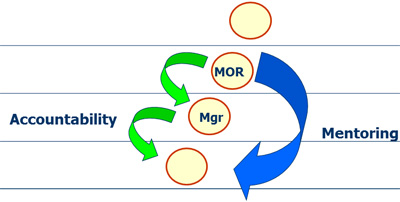“That’s it?” Rose looked puzzled. “But, I work with a bunch of engineers. I am their manager. The engineering team looks to me for advice, guidance and direction. Given a problem, they look to me for the solution. You are suggesting that I just ask questions?”
“Rose, how did you land this job as a manager of a bunch of engineers? Was it because you are so good at solving engineering problems?” I asked.
“No, I am not even an engineer, though I think I have an aptitude for it, that’s not my area of expertise.”
“Then, how did you land this job as manager of engineering?”
Rose stopped to think. “This is the third department assigned to me in as many years. The company has a trouble spot. They make me the manager. I come in and get things organized, figure out the team, who is strong, who the ringleaders are, who needs to go. For about a year, I work with the strongest team members and pick one to take my place.”
“So what’s your plan here?” I wanted to know.
“Same thing,” Rose nodded. “Get things organized, figure out the team. Pick the strongest one to replace me. It will take about a year. I have already been told not to get too comfortable, the company is already working on my next assignment.”
